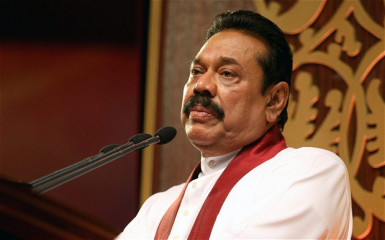COLOMBO, (Reuters) – Former president Mahinda Rajapaksa’s attempt to stage a comeback in Sri Lanka’s general election has ended in defeat as results yesterday showed the alliance that toppled him making decisive gains.

The ruling United National Party (UNP) fell just short of an outright majority, but Prime Minister Ranil Wickremesinghe should still command enough support to form a stable government after eight months of minority rule. “I invite all of you to join hands,” Wickremesinghe, 66, said in a statement. “Let us together build a civilised society, build a consensual government and create a new country.”
The outcome is a victory for President Maithripala Sirisena, who beat his former ally Rajapaksa in a presidential election in January and called an early parliamentary vote to secure a stronger mandate for reforms.
That poll triumph triggered wild street celebrations, but this time Colombo was quiet – reflecting a sense that a difficult political transition was being completed rather than marking a new beginning.
Defeat for Rajapaksa will keep Sri Lanka on a non-aligned foreign policy course and loosen its ties with China, which during his rule pumped in billions of dollars to try to turn the Indian Ocean island into a maritime outpost.
Wickremesinghe’s UNP doubled its representation to win 106 seats, final results showed, seven short of a majority in the 225-seat chamber. The alliance led by Rajapaksa’s Sri Lanka Freedom Party (SLFP) took 95 seats after suffering heavy losses.
The UNP won 45.7 percent of the popular vote, ahead of 42.4 percent for Rajapaksa.









